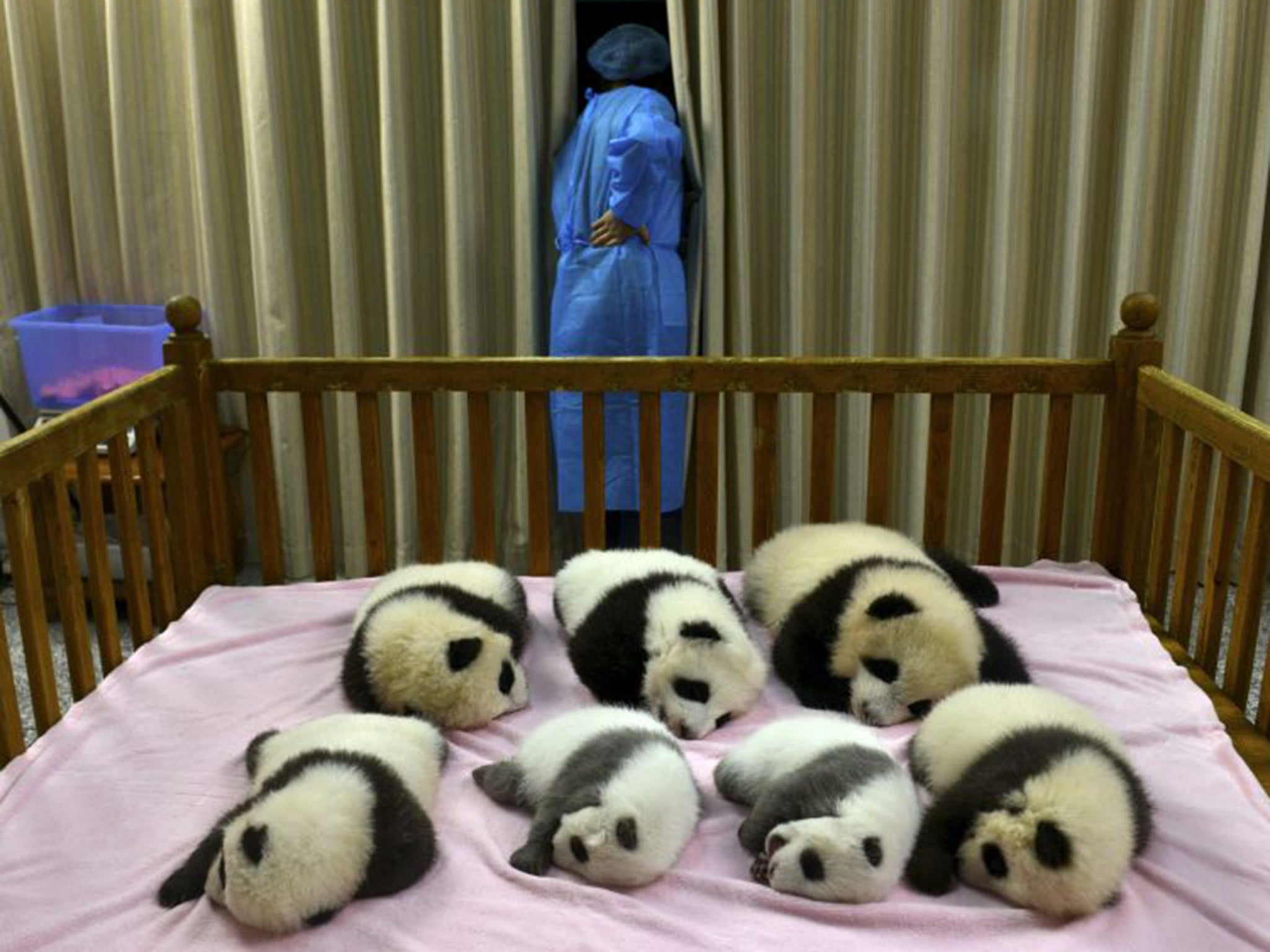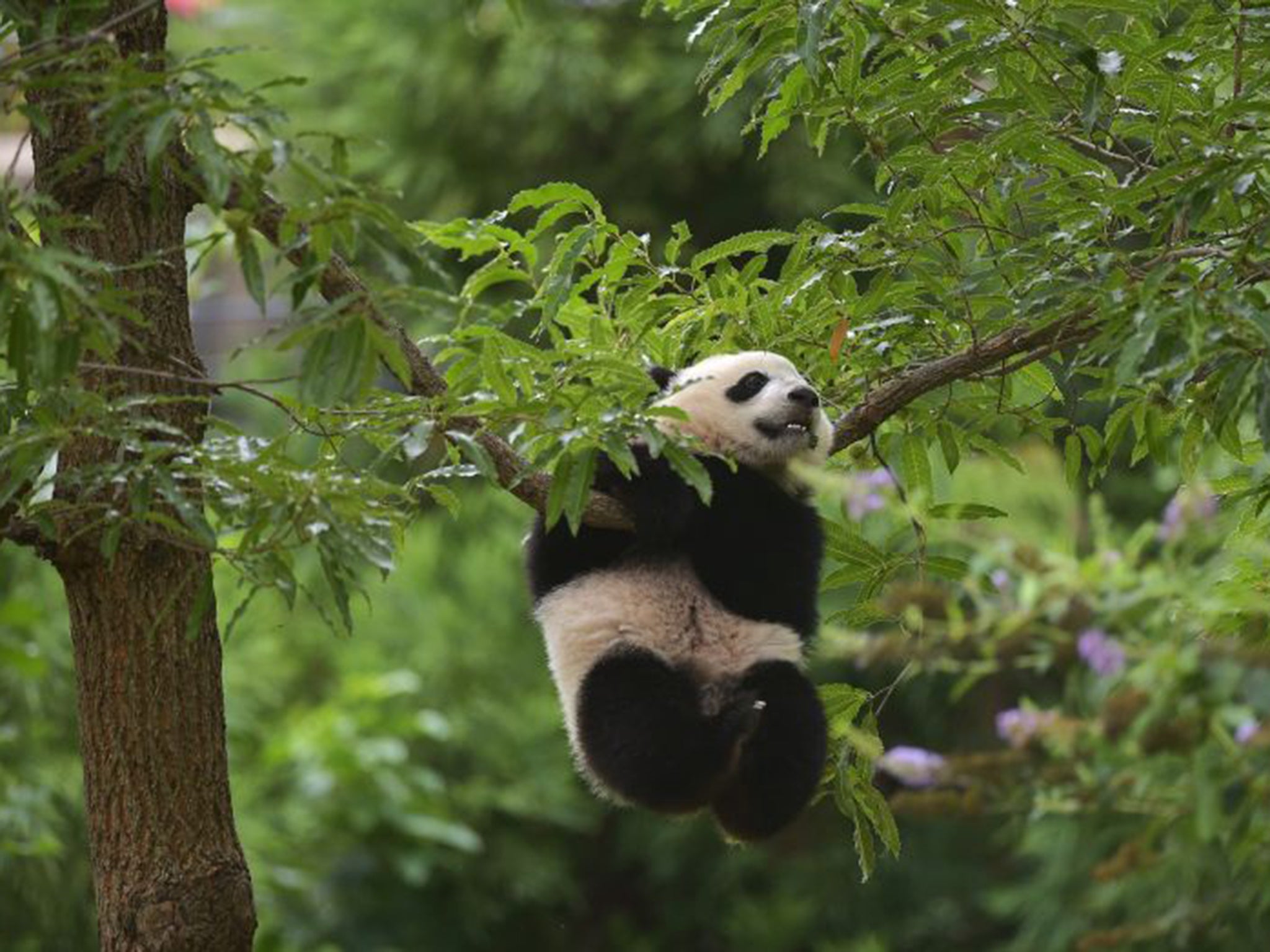China's wild panda numbers have increased by 17% since 2003, new census reveals
But their habitat is still under threat from fragmentation, caused by physical barriers such as roads

They have acquired a reputation as being rather picky when it comes to sex, but giant pandas in the wild appear to have been busy. According to a new census in China, the population of the animals has gone up by 268 since 2003, taking their total numbers to 1,864 – an increase of nearly 17 per cent. The bears have also extended their territory to more than 2.5m hectares – a 12 per cent increase.
Nicola Loweth, conservation group WWF UK’s regional officer for India and China, said: “The increase in population is due to the implementation of a number of successful conservation actions by the Chinese government, nature reserve staff and local communities.”
She said that the panda population’s growth had wider benefits. “This news is not just about giant pandas. We’re also talking about their habitats. It means that very important eco-systems are being protected for a whole range of other species.”
Their numbers are thought to have been boosted by the establishment of the Giant Panda Nature Reserve Network, measures to ban logging in certain areas and steps to reduce poaching. The number of designated nature reserves has also been increased from 40 to 67 since 2003, so that about two-thirds of the wild panda population now live in protected areas.
But giant pandas, which live in China’s south-western provinces of Sichuan, Shaanxi and Gansu, are still classed as “endangered” by the International Union for Conservation of Nature.
Ms Loweth said a new problem was emerging, which was overtaking habitat loss, illegal logging and poaching as the main threat to the species: “Their habitat has been fragmented [by physical barriers such as roads] quite substantially. Breeding can become more difficult because it is harder for pandas to move between isolated patches of habitat,” she said.
The animals’ low rate of reproduction and small litters remain problems facing the survival of the species. Ms Loweth said that because numbers had fallen so low “it takes a long time for populations to then recover”.
Science writer Jules Howard echoed those concerns but added: “There’s definitely reason to be cautiously congratulatory to China.
“The pressure is on China, the whole world is watching,” he said. “This is showpiece conservation from them. The problem they have is that panda populations are being dissected by roads, by mining, by hydroelectric power encroaching on their habitat. [China has] got to be seen to be protecting the habitats the pandas live in, but at the same time they don’t want to hinder [economic] growth.”

Mr Howard said while the extra numbers of wild pandas were welcome, the rise had happened over a decade and “one would hope for more, ideally”.
For China, pandas are a symbol of diplomacy – often gifted to other countries to foster international ties. Loans of the animals to zoos around the world have also provided an additional source of income for the country. “The pandas internationally are diplomatic tools for China and have been for half a century, so they can’t be seen to be letting pandas disappear in the wild,” Mr Howard said. “Nowadays China’s focus is on captive breeding for release back into the wild. If the wild is not safe, the whole international project is undermined.”
He dismissed any suggestions that pandas were too lazy to breed. The females have only a “two-day sex window” but he described this as a “sign of their sexual prowess”.
The panda population had fallen so low that some wildlife experts have begun to suggest they should be left to die out.
Speaking to The Independent in 2013, naturalist and BBC presenter Chris Packham said: “[The panda] is a very obvious totemic symbol that was picked on by campaigners for its cuteness and not its conservation value. It’s not possible to save everything. The burgeoning human population and lack of resources for ourselves and other species mean we’ll have to play God at some point and decide what we’re going to do.”
Join our commenting forum
Join thought-provoking conversations, follow other Independent readers and see their replies
Comments
Bookmark popover
Removed from bookmarks